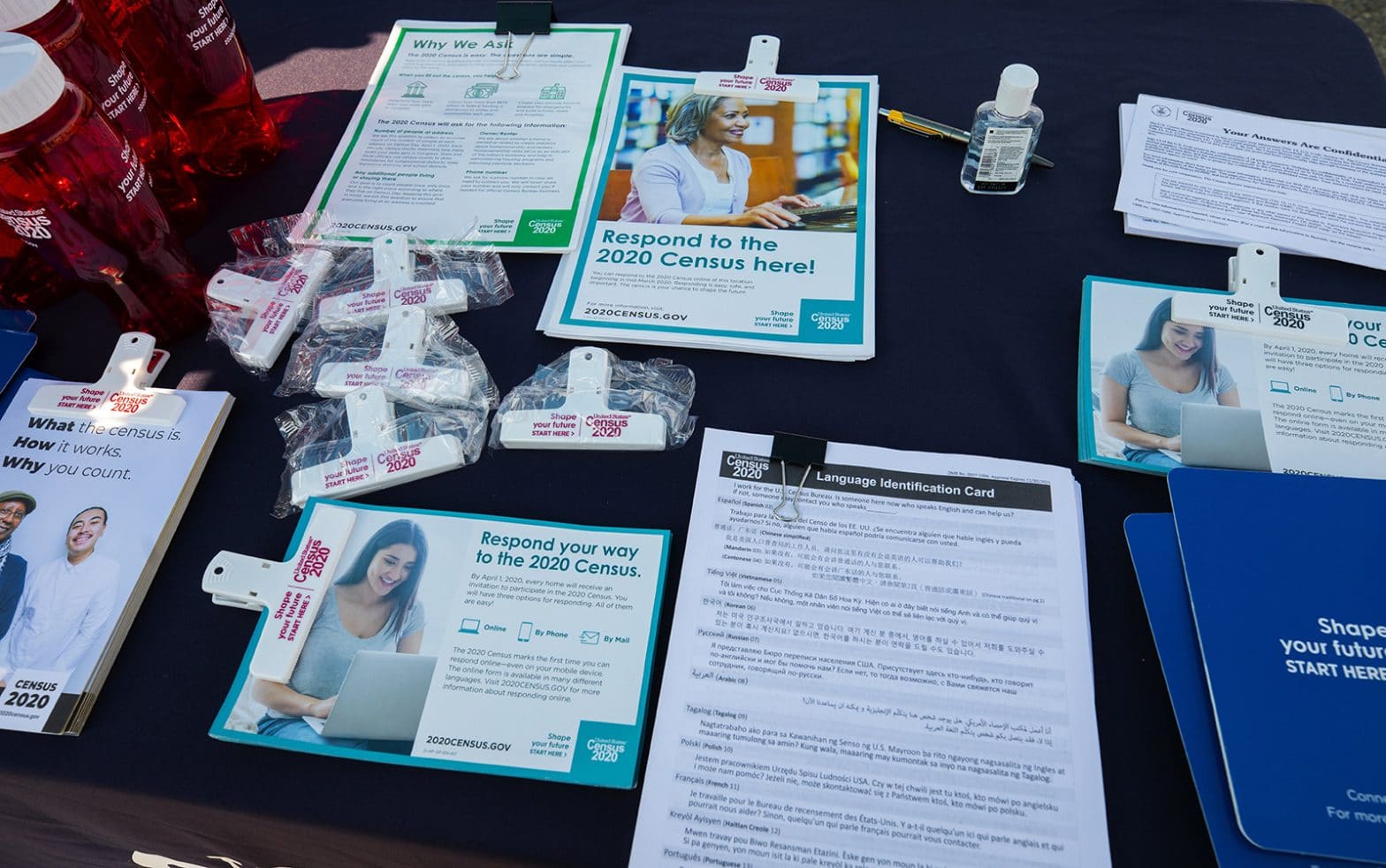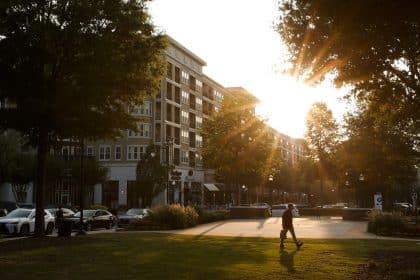Trump Administration’s Census Plan Might Leave Out Some Legal Residents

WASHINGTON — A Trump administration plan to use the census to exclude from congressional representation immigrants who are living here illegally might inadvertently exclude many U.S. citizens living under the radar in states such as Alaska, New Mexico and West Virginia.
Last week, a federal appeals court in New York blocked the administration’s strategy, ruling that “the President does not have the authority to exclude illegal aliens” from congressional representation since the Constitution calls for “total population” as the basis for apportioning seats. But the ruling allowed federal work on identifying immigration status to continue, in case the ruling is overturned by a higher court.
The U.S. Census Bureau has not shared the strategy it would use to identify people living here illegally. However, it often relies on “identification by exclusion” when it can’t find someone in official records such as driver’s licenses and benefits that require proof of citizenship, said Todd Graham, a forecaster for the Metropolitan Council in Minneapolis-St. Paul and former chairman of the Census Bureau’s state data center network.
The problem is that, like immigrants living here illegally, many U.S. citizens who live in rural or tribal areas and are wary of answering census questions also leave a limited paper trail.
In a 2014 test matching 2010 survey responses to administrative records, which can verify citizenship and legal status, the success rate for matches was less than 75% in 23 states and the District of Columbia. In the test, Census Bureau data scientists sought to match names, birthdates and addresses for people who responded to the 2010 American Community Survey to administrative data including tax returns, change of address forms and housing subsidies.
However, states with low matching rates were not generally high-immigration states with large numbers of people living here illegally. That suggests that many of the people without a paper trail were not living in the shadows because of their immigration status, but for other reasons. Of the 23 states with matching rates under 75%, only six had an above-average share of people living here illegally, according to Pew Research Center estimates. (The Pew Charitable Trusts funds Stateline and the research center.)
In fact, among the top 10 states with the lowest match rates, only Arizona has above-average rates of people living here illegally, about 3.9%, according to the Pew estimates. The rest range from less than 1% in Mississippi, Montana, Vermont and West Virginia to 3.3% in Hawaii. The national average is 3.3%.
In Alaska, where the match rate is lowest, “there are a lot of towns in these vast rural areas that are off the road system,” said State Demographer David Howell, so people tend not to have addresses in the usual sense or get driver’s licenses that can clarify legal status.
That’s one reason the Census Bureau could match only 45.6% of people and addresses in Alaska for the 2014 test, said Amy O’Hara, director of Georgetown University’s Federal Statistical Research Data Center and a former Census Bureau official in charge of administrative data.
“The New Mexico and Alaska results are likely driven by the lack of city-style addresses,” O’Hara said. “There are a lot of rural route and post office box addresses. That leaves the matching reliant on name and date of birth, which are less unique and often less complete and noisier.”
States could help the Census Bureau by providing the administrative data they have, O’Hara said. But many states led by Democrats and Republicans alike have refused to turn over driver’s license data, which was requested by the Trump administration in 2019 to verify citizenship, citing privacy issues and state law.
Only Iowa, Nebraska, South Carolina and South Dakota have said they will share license and other identifying information. All four states require evidence of legal residence for driver’s licenses and ID cards.
Asked for comment, the Census Bureau referred to Director Steven Dillingham’s July statement to a congressional committee, in which he said the bureau needs to count every person, with or without legal status, while respecting President Donald Trump’s order to identify and exclude some people from congressional apportionment.
“We will continue full steam ahead with our mission of counting every person,” Dillingham said.
Another barrier to counting residents in remote areas is a new hostility to census questions, even among non-immigrants upset about the failure to add a citizenship question to the 2020 census.
“If they insist on counting illegals in the census, and trying to swell representation of leftist states with that tactic, the only answer to balance it out is not to take it,” wrote one Twitter account last year using the #ShredTheCensus hashtag. Apparently, some people are taking that advice to heart, said Graham of the Metropolitan Council in Minneapolis-St. Paul.
“One of the things I’m hearing anecdotally is enumerators now working their address lists are having difficulty getting interviewees to give names,” Graham said, “and it’s not just foreign-born people, it’s also Trump Country people who have bought into a pernicious mindset.”
With so much confusion, citizens and legal immigrants are bound to end up mischaracterized as living here illegally, some experts argue.
“There’s very little the administration can do to identify undocumented immigrants, and in many cases this process will identify U.S.-born citizens and naturalized immigrants and legal immigrants on visas,” said Jennifer Van Hook, a professor of sociology and demography at Penn State.
Van Hook was one author of a study by the nonpartisan Migration Policy Institute that found record-matching would probably flag 30 million people as likely to be living here illegally, almost three times the level of actual unauthorized immigration, about 10.7 million people by Pew’s estimate.
The study cites a previously unpublished finding by Van Hook, showing that 20 million of 30 million unmatchable records from a 2017 survey belonged to U.S. citizens. And given the pandemic, confusion caused by people fleeing urban hots pots and college students sent home because of outbreaks could cause even more distortion that mislabels people when their names and addresses don’t match official records, the study concluded.
“To date, the Trump administration and the Census Bureau have offered only limited information on how the matching will happen or how to address difficulties in the process,” the study concluded. “This lack of transparency could further reduce trust not only in the census, but also in the fairness of our political system.”
———
©2020 Stateline.org
Distributed by Tribune Content Agency, LLC.























